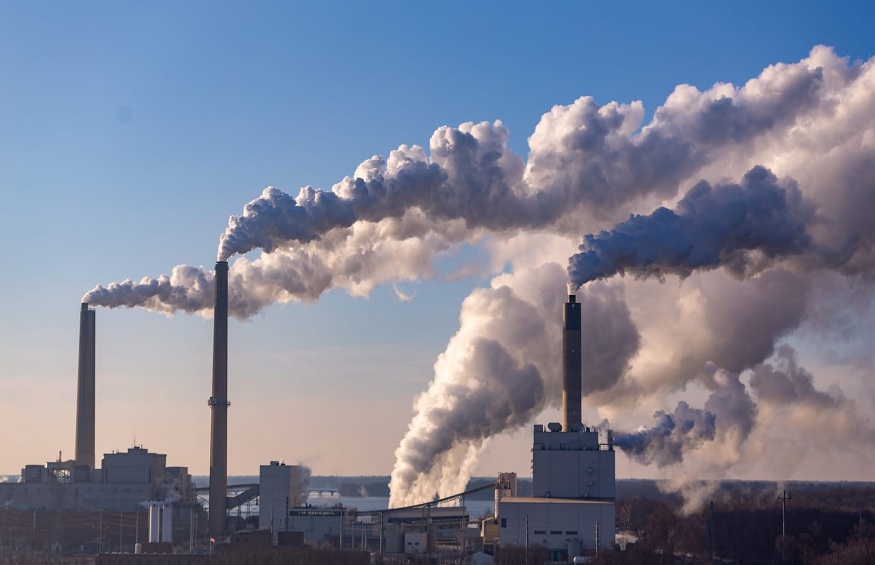At the start of February this year, UK Environment Secretary Thérèse Coffey announced that the government might not be able to reach its air pollution targets. According to the secretary, reducing fine particulate matter to 10 micrograms per cubic metre from the usual 20µg/m3 is going to be difficult to achieve in London and everywhere else in the UK by the decade’s end.
However, industry experts believe otherwise. A King’s College London research showed evidence that the UK government has the capacity to achieve its air pollution goals, especially if clearer and stricter programs address the root cause of the problem. Two of the main sources of toxic air are wood burning and emissions from diesel vehicles.
Coffey issued her statement after she shared the government’s new plan for the environment. She also revealed that new, lower targets have been set covering a period of 10 years. She said expectations should be managed when it comes to limiting the country’s air pollution levels. Coffey expressed her views a few days after London was given a pollution warning that lasted for several days.
Reactions were mixed but one comment stood out, one that came from a fuel expert who described the environment secretary’s admission as something to be ashamed of. Government policies on air pollution, the expert said, were very lenient. He said the technology needed to reduce toxic air is already there.
The WHO’s recommended 2005 recommended limit was 10µg/m3. However, after collecting enough evidence of the life-threatening effects of fine particles on human health even at smaller concentrations, the limit was lowered to five. The organization found out that over the years, around 500,000 individuals who suffered from pneumonia, COPD, and asthma have died. Additionally, hospital admissions in Wales and England doubled, particularly those related to lung problems. In 1999, there were only 1,535 while the 2019 numbers were at 3,143.
Diesel emissions scandal: what happened?
A major contributor to air pollution is the Dieselgate scandal that hogged the spotlight in 2015. The Volkswagen Group was accused of using defeat devices in Audi and VW diesel vehicles that they sold in the US. American authorities sent a notice of violation and ordered the German carmaker to recall the thousands of vehicles affected by the cheat device.
Vehicles with a defeat device have emissions that are lowered according to the WHO’s legal limits. The device senses when the vehicle is already in the lab for testing, and this is when it reduces emissions. To regulators, the vehicles are clean and safe. Outside testing conditions, though, the vehicle performs differently.
Once it is driven on real-life roads, the vehicle emits unlawfully high levels of nitrogen oxide or NOx. So, the vehicle is a pollutant. It also endangers the environment and the people. Exposure to nitrogen dioxide can have serious impacts on a person’s health.
US authorities ordered VW to recall all affected vehicles so they could be fitted with the correct engine. Volkswagen complied with the order and paid off fines and compensation as well.
Over the years, other carmakers also became involved in the scandal. Mercedes-Benz and BMW were the first ones to follow VW. British-based Vauxhall is one of the latest additions to the list. The KBA or German Federal Motor Transport Authority allegedly discovered cheat software in several Vauxhall diesel vehicles. Collective action, or a GLO (Group Litigation Order), has started against the carmaker.
The Vauxhall emissions scandal affects diesel-powered cars and vans that were made between the years 2008 and 2019. Models covered include the following:
- Zafira
- Vivaro
- Meriva
- Crossland
- Mokka
- Corsa
- Insignia
- Agila
- Cascada
- Astra
- Antara
- Movano
- Combo
The Dieselgate scandal is considered the most controversial issue to ever involve the global automotive industry. It is also one of the reasons why air pollution levels continue to increase. Vehicle emissions, particularly NOx, continuously threaten human lives and the environment.
Why are NOx emissions threatening?
NOx emissions contain nitrogen dioxide or NO2, a gas that can pose various negative effects on your health. It can cause respiratory issues, among others. Nitrogen oxide also contains nitric oxide or NO.
As NOx reacts easily when mixed with other elements, it aids in the formation of acid rain and smog, two air pollution factors that also have adverse health impacts. In addition, it produces a pollutant known as ground-level ozone, which is responsible for damaging vegetation.
The scariest impacts of nitrogen oxide, however, are on your health.
In some cases, mental health issues are the first to surface. You’ll experience frequent episodes of depression and anxiety. Your cognitive health may also suffer, and you can develop dementia.
Respiratory issues and asthma are the common impacts of exposure to NOx emissions. The more serious ones are:
- COPD
- Pulmonary oedema
- Laryngospasm
- Cancer
- Asphyxiation
- Cardiovascular disease
- Premature death
Aside from lying to drivers, carmakers also exposed you and all their other customers to the life-altering, life-threatening health impacts listed above. It is your right to file a diesel claim against them.
Should I file my diesel claim now?
The best time to start an emission claim is now. Carmakers will keep deceiving car owners if they are not held responsible for their actions.
Start your diesel claim by checking if you are qualified to receive compensation. Visit ClaimExperts.co.uk to get the information you need.




